Mónica Bello, Curator and Head of Arts at CERN talks about the programmes that have been fostering the dialogue between artists and physicists for over a decade with the aim of exploring the cultural significance of fundamental research.


Einstein’s theory of relativity paved the way for black holes’ discovery, but the concept behind their existence was so bizarre that even the scientific visionary was not convinced.
More than a century ago, Albert Einstein stunned the world when he explained the universe through his theory of general relativity. The theory not only described the relationship between space, time, gravity and matter, it opened the door to the theoretical possibility of a particularly mind-boggling phenomenon that would eventually be called black holes.
The concept that explains black holes was so radical, in fact, that Einstein, himself, had strong misgivings. He concluded in a 1939 paper in the Annals of Mathematics that the idea was “not convincing” and the phenomena did not exist “in the real world.”
The unveiling of the first-ever picture of a black hole by the Event Horizon Telescope in April 2019, however, not only confirmed Einstein’s original theory, but also provided indisputable proof that the gravitational monsters are, in fact, real.
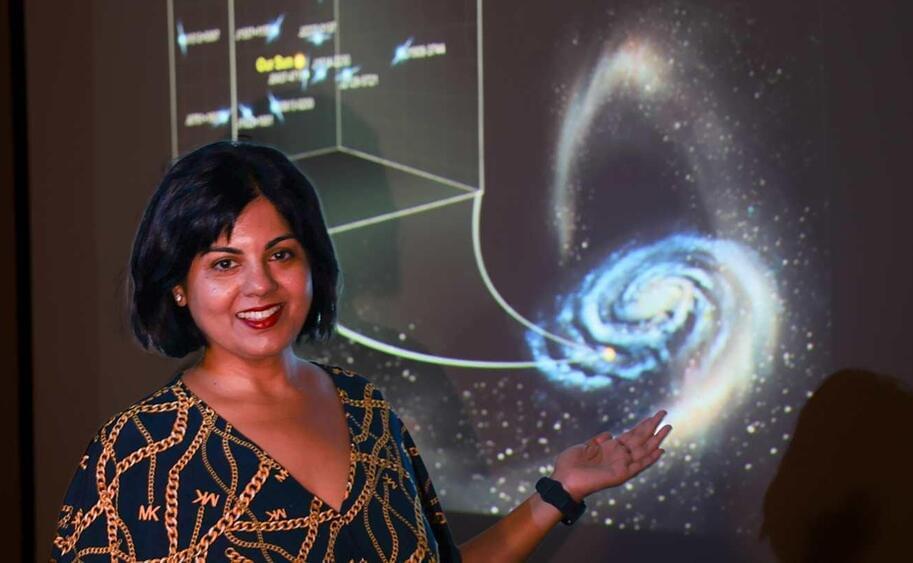
Dark matter comprises more than 80% of all matter in the cosmos but is invisible to conventional observation, because it seemingly does not interact with light or electromagnetic fields. Now Dr. Sukanya Chakrabarti, the Pei-Ling Chan Endowed Chair in the College of Science at The University of Alabama in Huntsville (UAH), along with lead author Dr. Tom Donlon, a UAH postdoctoral associate, have written a paper to help illuminate just how much dark matter there is in our galaxy and where it resides by studying the gravitational acceleration of binary pulsars.
Chakrabarti gave a plenary talk on this work and other methods to measure galactic accelerations at the 243rd meeting of the American Astronomical Society in New Orleans in January. The findings are also posted on the arXiv preprint server.
Pulsars are rapidly rotating neutron stars that blast out pulses of radiation at regular intervals ranging from seconds to milliseconds. A binary pulsar is a pulsar with a companion that allows physicists to test general relativity because of the strong gravitational fields accompanying these objects. “Pulsars are fantastic galactic clocks that have a timing stability that rivals atomic clocks,” Chakrabarti explains.
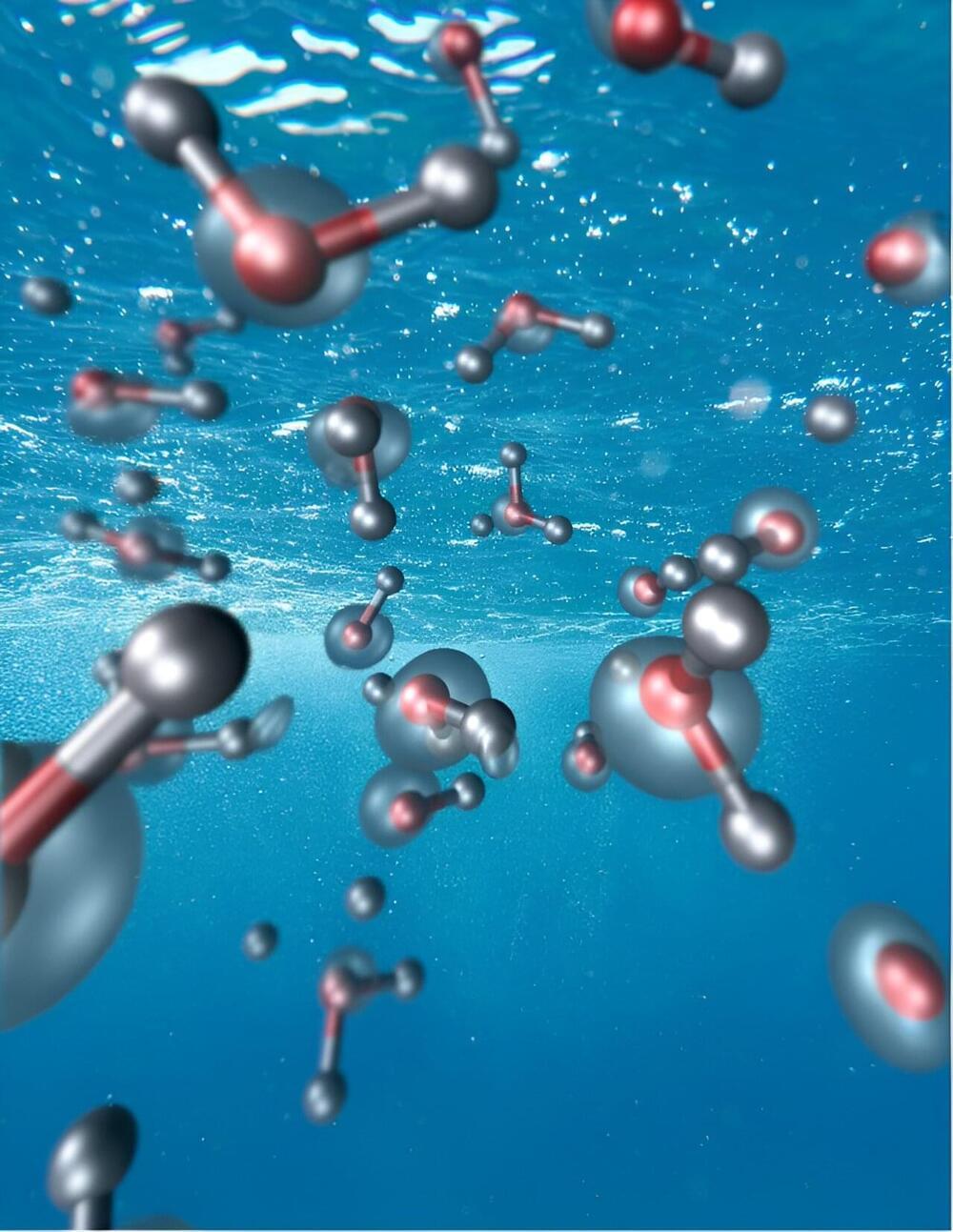
There is no doubt that water is significant. Without it, life would never have begun, let alone continue today—not to mention its role in the environment itself, with oceans covering over 70% of Earth.
But despite its ubiquity, liquid water features some electronic intricacies that have long puzzled scientists in chemistry, physics, and technology. For example, the electron affinity, i.e., the energy stabilization undergone by a free electron when captured by water, has remained poorly characterized from an experimental point of view.
Even today’s most accurate electronic structure theory has been unable to clarify the picture, which means that important physical quantities like the energy at which electrons from external sources can be injected in liquid water remain elusive. These properties are crucial for understanding the behavior of electrons in water and could play a role in biological systems, environmental cycles, and technological applications like solar energy conversion.
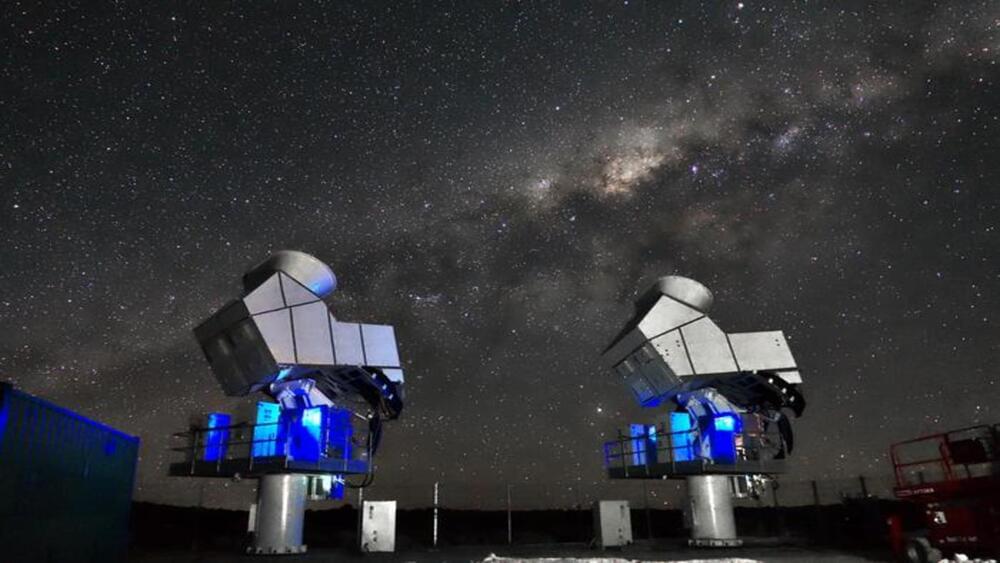
We are always making strides to unravel the mysteries of our universe. Now, a small observatory nestled in the Andes mountains of northern Chile has provided a snapshot of the cosmos in space. This one is clearer than we imagined.
The U.S. National Science Foundation Cosmology Large Angular Scale Surveyor (CLASS), spearheaded by astrophysicists from Johns Hopkins University, mapped a whopping 75 percent of the sky.
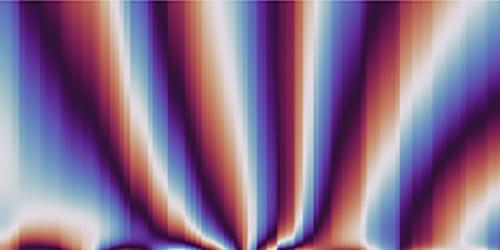
New theoretical work establishes an analogy between systems that are dynamically frustrated, such as glasses, and thermodynamic systems whose members have conflicting goals, such as predator–prey ecosystems.
A system is geometrically frustrated when its members cannot find a configuration that simultaneously minimizes all their interaction energies, as is the case for a two-dimensional antiferromagnet on a triangular lattice. A nonreciprocal system is one whose members have conflicting, asymmetric goals, as exemplified by an ecosystem of predators and prey. New work by Ryo Hanai of Kyoto University, Japan, has identified a powerful mathematical analogy between those two types of dynamical systems [1]. Nonreciprocity alters collective behavior, yet its technological potential is largely untapped. The new link to geometrical frustration will open new prospects for applications.
To appreciate Hanai’s feat, consider how different geometric frustration and nonreciprocity appear at first. Frustration defies the approach that physics students are taught in their introductory classes, based on looking at the world through Hamiltonian dynamics. In this approach, energy is to be minimized and states of matter characterized by their degree of order. Some of the most notable accomplishments in statistical physics have entailed describing changes between states—that is, phase transitions. Glasses challenge that framework. These are systems whose interactions are so spatially frustrated that they cannot find an equilibrium spatial order. But they can find an order that’s “frozen” in time. Even at a nonzero temperature, everything is stuck—and not just in one state. Many different configurations coexist whose energies are nearly the same.
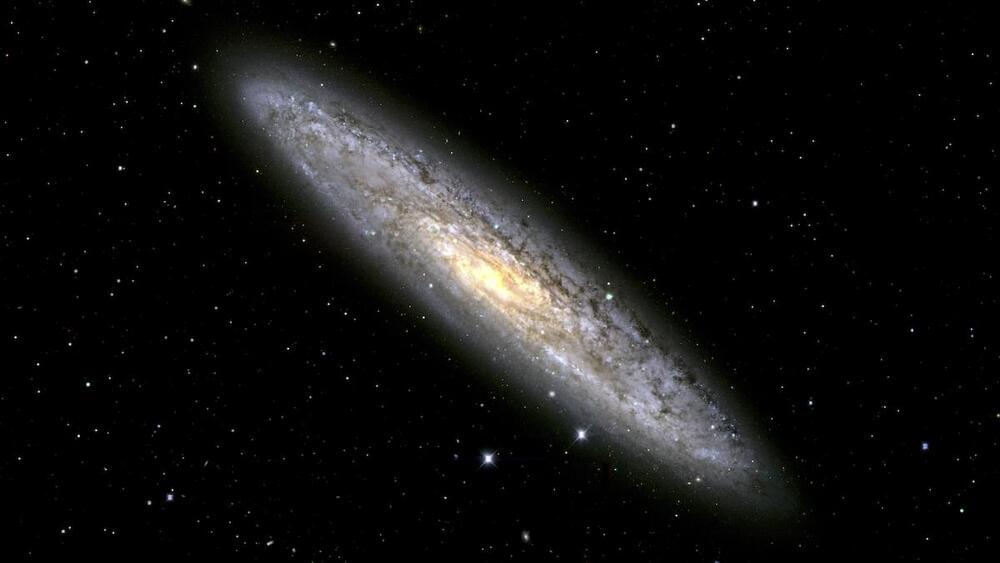
What can the night sky tell us about the expansion of the universe?
It’s a loaded question, one that researchers across the globe have been trying to answer for decades. Since 2013, they’ve been helped by the Dark Energy Survey (DES), a collaboration of more than 400 scientists at 25 institutions. At Penn, this includes Masao Sako, Arifa Hasan Ahmad and Nada Al Shoaibi Presidential Professor of Physics and Astronomy; Bhuvnesh Jain, Walter H. and Leonore C. Annenberg Professor in the Natural Sciences; Gary Bernstein, Reese W. Flower Professor of Astronomy and Astrophysics; and a handful of others from the Department of Physics & Astronomy.
In 2019, the DES finished collecting data, but analysis and discoveries continue, including one that Sako and colleagues announced recently in which they validated the “cosmic acceleration” model and dark energy’s role in it. That research is one of five recent studies detailed below, in this second iteration of Omnia’s new research roundup.
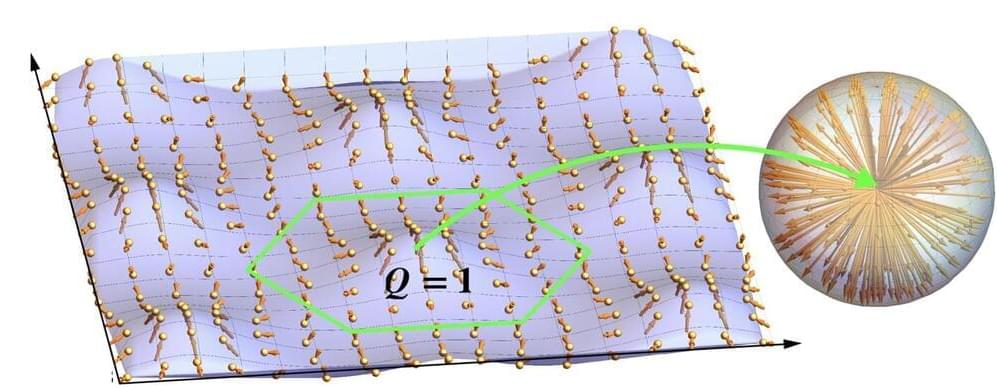
Topological wave structures are wave patterns that exhibit specific topological properties, or in other words, properties that remain unvaried under smooth deformations of a physical system. These structures, such as vortices and skyrmions, have attracted significant attention within the physics research community.
While physicists have carried out extensive studies focusing on topological wave structures in various wave systems, surprisingly their most classical example remains unexplored. These are water waves, oscillations or disturbances that propagate on the surface of water or other fluid.
Researchers at RIKEN recently set out to fill this gap in the literature, by offering a description of various water-wave topological structures. Their paper, published in Physical Review Letters, offers a theoretical framework that could inform future experiments aimed at emulating topological wave phenomena.
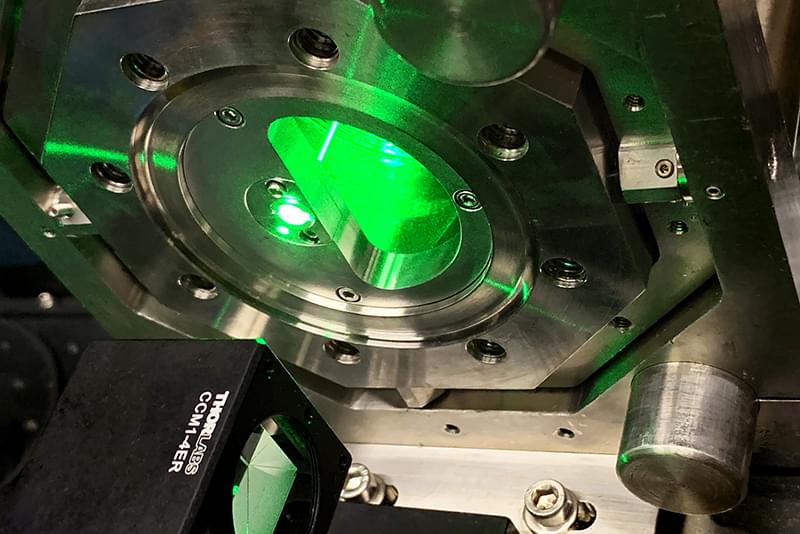
Scientists are getting a more detailed look than ever before at the electrons they use in precision experiments.
Nuclear physicists with the U.S. Department of Energy’s Thomas Jefferson National Accelerator Facility have shattered a nearly 30-year-old record for the measurement of parallel spin within an electron beam – or electron beam polarimetry, for short. The achievement sets the stage for high-profile experiments at Jefferson Lab that could open the door to new physics discoveries.
In a peer-reviewed paper published in the journal Physical Review C (“Ultrahigh-precision Compton polarimetry at 2 GeV”), a collaboration of Jefferson Lab researchers and scientific users reported a measurement more precise than a benchmark achieved during the 1994–95 run of the SLAC Large Detector (SLD) experiment at the SLAC National Accelerator Laboratory in Menlo Park, California.
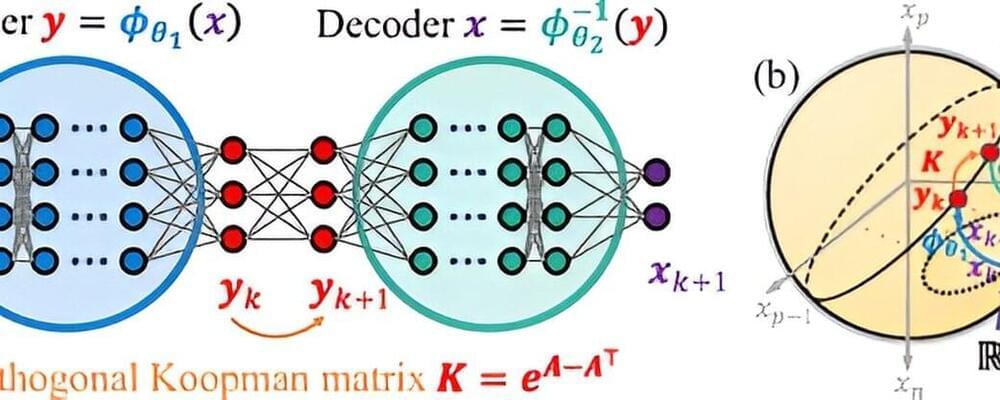
In a recent development at Fudan University, a team of applied mathematicians and AI scientists has unveiled a cutting-edge machine learning framework designed to revolutionize the understanding and prediction of Hamiltonian systems. The paper is published in the journal Physical Review Research.
Named the Hamiltonian Neural Koopman Operator (HNKO), this innovative framework integrates principles of mathematical physics to reconstruct and predict Hamiltonian systems of extremely-high dimension using noisy or partially-observed data.
The HNKO framework, equipped with a unitary Koopman structure, has the remarkable ability to discover new conservation laws solely from observational data. This capability addresses a significant challenge in accurately predicting dynamics in the presence of noise perturbations, marking a major breakthrough in the field of Hamiltonian mechanics.